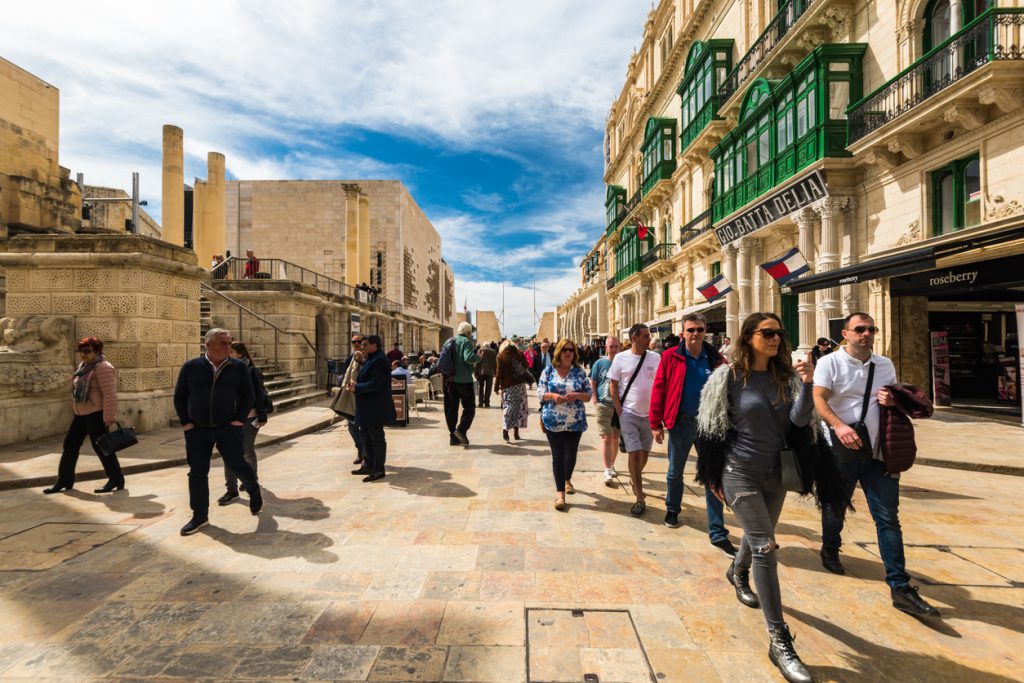Rule of law in Malta: EP delegation finishes on-the-ground assessment

On Wednesday 25 May, a delegation of the Civil Liberties Committee concluded its visit to Valletta, which was organised upon the recommendation of the Monitoring Group on Democracy, Rule of Law and Fundamental Rights (DRFMG). The delegation comprised Vladimír BILČÍK (EPP, SK), Franco ROBERTI (S&D, IT), Sophie IN ‘T VELD (Renew, NL) as Delegation Chair, Gwendoline DELBOS-CORFIELD (Greens/EFA, FR), Nicolaus FEST (ID, DE), and Konstantinos ARVANITIS (The Left, EL). They collected first-hand information and assessed the situation as regards the rule of law, recent judicial reforms, safety of journalists, anti-corruption measures, and citizenship and residence by investment schemes.
Sophie in ‘t Veld, Delegation and DRFMG Chair, said:
“The visit to Malta took place in the context of the ongoing monitoring exercise since 2018, and more particularly against the backdrop of an intensified debate about the importance of the rule of law in Europe, and the application of the rule of law conditionality mechanism with regard to EU funding.
We appreciate the continued availability of the Maltese authorities and the government for dialogue and exchange.
Ending the culture of impunity described by the Public Inquiry conclusions requires wholehearted and cross-party acknowledgement of the problems, and a cross-party effort to fully and correctly implement the letter and the spirit of all the recommendations of the Public Inquiry Committee, the Venice Commission and GRECO. The delegation welcomes a number of reforms that have been initiated or put on the political agenda since our last visit in December 2019. However, most of the recommendations are yet to be implemented or completed.
In this regard, the delegation fears that a certain sense of urgency was lost, while many of the fundamental challenges in Malta persist. The delegation therefore reiterates the urgent need to step up the pace and see through the necessary legislative reforms.
Many of our interlocutors described slow proceedings and insufficient capacity as two of the main issues relating to the justice system. The delegation is appalled that more than four and a half years after the assassination of Daphne Caruana Galizia, there is still no justice served and a number of accused, including the actual mastermind, have still not been convicted. Justice delayed is justice denied. Without justice being served, trust and reconciliation can never be fully achieved.
With regards to investigation and prosecution of crime in general, the delegation welcomes that additional capacities are being made available. The delegation welcomes the reformed appointment procedure for judges, and the ongoing reform of the Attorney General’s office and role. However, it is too early to assess the changes. We also welcome the efforts of the FIAU that have already yielded tangible results. Overall, it is essential that high-profile financial and economic crimes, especially corruption and money laundering, be prosecuted rigorously. The DRFMG will monitor closely the developments with regard to prosecuting crime. The delegation welcomes the recent referrals to EPPO, however the overall number of cases remains relatively low in comparison to other Member States and the delegation shares the European Chief Prosecutor’s observations that the Maltese system to detect, investigate, and prosecute crimes remains opaque.
The delegation stresses that the Maltese Citizenship by Investment (CBI) programme remains a source of major concern, as well as Parliament’s position that EU citizenship is not for sale, and calls for an immediate ban of the programme. It needs to be reiterated that Malta is the last country in the EU running such citizenship scheme. It is with regret that the concerns presented by the delegation were not met by the Government, which signalled that the CBI programme would continue unless there is a prohibitive ruling by the EU’s Court of Justice.
Obstacles to media freedom and pluralism, for example with regard to access to information requests as well as potentially discriminatory funding of media outlets, persist and need to be addressed. The delegation acknowledges that the government brought forward a proposal for an anti-SLAPP law, but at the same time deplores that journalists, as well as family members of the late Daphne Caruana Galizia, are currently still targets of such frivolous lawsuits, and reiterates its urgent call to drop the cases. We call on the authorities to ensure the protection of journalists at all times and safeguard their independence.
The delegation is concerned about the debts accumulated by the two main political parties, as well as the lack of transparency on party financing in Malta. The practice of a part-time parliament raised additional questions with regard to the ability to implement reforms and transpose EU legislation. We also consider that the separation of powers and the need to hold government to account requires equal means for MPs, regardless of political affiliation.
The DRFMG will continue to monitor the developments in Malta closely. We also need to stress that the EU’s rule of law standards have to be fully complied with and that the institutions are in possession of tools assuring increased scrutiny, especially with regard to EU funding.”
You can watch a recording of the press conference that took place at the end of the visit on Parliament’s Multimedia Centre.
